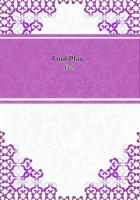"What say you, can you love this gentleman?"
Romeo and Juliet.
{William Shakespeare, "Romeo and Juliet", I.iii.79}
JANE'S strength and spirits were gradually improving. She had been persuaded to take a daily airing and had consented to see one or two of the ladies in her room. Mr. Wyllys always passed half an hour with her, every afternoon; and at length she came down stairs, and joined the family in the drawing-room, for a short time in the evening. Mr. and Mrs. Robert Hazlehurst, who came from Philadelphia to pass a day or two with her, found her much better than they had expected.
Charlie Hubbard returned to the grey cottage, with his portfolio full of sketches, intending to pass several months at home, in finishing his pictures of Lake George; the school-room having been converted into a painting-room for his use. Miss Patsey's little flock were dispersed for a time; and Charlie was even in hopes of persuading his mother and sister to accompany him to New York, where Mary Hubbard, the youngest sister, was now engaged in giving music lessons. He felt himself quite a rich man, and drew up a plausible plan for hiring a small house in some cheap situation, where they might all live together; but Miss Patsey shook her head, she thought they could not afford it. Still, it was delightful to her, to listen to plans devised by Charlie's warm heart; she seemed to love him more than ever, since he had even sacrificed his moustaches to his mother's prejudice against such foreign fashions.
"Keep your money, Charles; we can make out very well in the old cottage; more comfortably than we have ever done before. You will want all you can make one of these days, when you marry," said Miss Patsey.
To her surprise, Charlie showed some emotion at this allusion to his marrying, and remained perfectly silent for an instant, instead of giving the playful answer that his sister had expected to hear.
Mrs. Hubbard then observed, that she should not wish to move; she hoped to end her life in the old grey cottage. They had lived so long in the neighbourhood of Longbridge, that a new place would not seem like home to Patsey and herself. Charlie must come to see them as often as he could; perhaps he would be able to spend his summers there.
"Well, we shall see, mother; at any rate, Mary and I together, we shall be able to make your life easy, I trust."
Mrs. Hubbard observed, that although they had been poor for the last seventeen years, yet they had never really seemed to feel the weight of poverty; they had met with so much kindness, from so many relations and friends.
"But kindness from our own children, mother, is the most blessed of all," said Patsey.
Charlie did not give up his plan, however, but he forbore to press it for the present, as he was engaged to drive his sister, Mrs. Clapp, to her own house at Longbridge. Hubbard had kept aloof from his brother-in-law whenever he could, since the Stanley suit had been commenced; any allusion to this affair was painful to him; he had never respected Mr. Clapp, and now strongly suspected him of unfair dealing. He pitied his sister Kate from the bottom of his heart; but it seemed pity quite thrown away. To judge from her conversation, as Charlie was driving her home, she had implicit confidence in her husband; if she had at first doubted the identity of the sailor, she had never for a second supposed, that William himself was not firmly convinced of it. On the other hand, she began to have some misgivings as to the character and integrity of Mr. Wyllys, whom hitherto, all her life long, she had been used to consider as the model of a gentleman, and an upright man. She soon got up quite a prejudice against Mrs. Stanley; and as for Hazlehurst, he fell very low indeed in her estimation.
"You don't know what trouble poor William has with this suit," she said to her brother. "I am sometimes afraid it will make him sick. It does seem very strange, that Mr. Stanley's executors should be so obstinate in refusing to acknowledge his son. At first it was natural they should hesitate; I mistrusted this sailor at first, myself; but now that William has made everything so clear, they cannot have any excuse for their conduct."
Charlie whipped the flies from his horse, without answering this remark.
"I hope William will come home to-night. He and Mr. Stanley have gone off together, to get possession of some very important papers; they received a letter offering these papers, only the night before last, and William says they will establish Mr. Stanley's claim, beyond the possibility of a denial. Mr. Wyllys and Mr. Hazlehurst will feel very badly, I should think, when they find that after all, they have been keeping their friend's son from his rights."
"They believe they are doing their duty," said Charlie, laconically.
"It seems a strange view of duty, to act as they do."
"Strange views of duty are very common," said Charlie, glad to take refuge in generalities.
"Common sense and common honesty will help us all to do our duty," observed Kate.
"No doubt; but both are more uncommon qualities than one would think, among rational beings," said Charlie.
"Well, you know, Charles, Patsey used to tell us when we were children, that a plain, honest heart, and plain, good sense were the best things in the world."
"That is the reason, I suppose, why we love our sister Patsey so much, because she has so much of those best things in the world," said Charlie, warmly. "I never saw a woman like her, for downright, plain goodness. The older I grow, the better I know her; and I love you, Kate, for the same reason--you are straightforward and honest, too," he added, smiling.
"William often laughs at me, though, and says my opinion is not good for much," said the sister, shaking her head, but smiling prettily at the same time.















